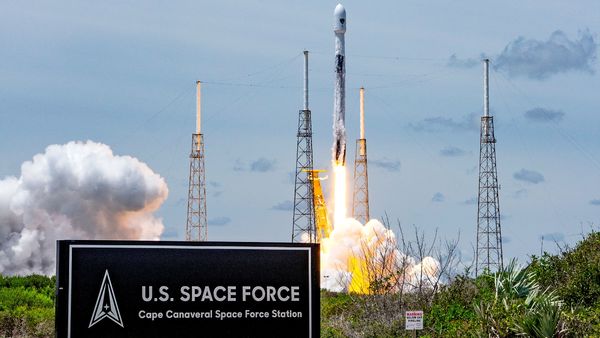Biotech stocks toppled Thursday after President Donald Trump announced broad global tariffs.
A fact sheet from the White House says pharmaceutical products will be exempt from the higher country-specific "reciprocal tariffs," though the 10% broad tariff still applies. But Leerink Partners analyst David Risinger says Trump could announce pharmaceutical tariffs "in the next month or so."
That's why RBC Capital markets analyst Brian Abrahams says it's premature to celebrate. And, indeed, biotech stock investors didn't. The SPDR S&P Biotech ETF toppled 3% to 78.14. Investor's Business Daily's Medical-Biomed/Biotech industry group lost 2.9%.
"Pharmaceutical tariffs could still be implemented in the future — and indeed, we thought that many had expected an announcement specific to pharmaceutical tariffs to be announced later, and/or to be phased in rather than immediate," Abrahams said in a client note. "The order calls out the need to maintain 'robust and resilient domestic manufacturing' in sectors like pharmaceuticals, suggesting this remains on the administration's radar for the future."
Biotech Stocks Slammed On Tariff Uncertainty
The reciprocal tariffs are the most recent push from the Trump administration to force companies to shift their manufacturing to the U.S. But biopharma companies and medical device makers need very specific types of clean rooms and laboratories, says Fictiv Chief Executive Dave Evans. Fictiv helps companies manage manufacturing challenges, including navigating the supply chain.
"My understanding is that supply chain was too complex and White House decided to exclude it for now," Evercore ISI analyst Umer Raffat said in a report.
If tariffs eventually hit the pharma space, they will pose a challenge for drugmakers that rely on a global supply chain to make ingredients overseas. Moving their operations stateside is "an expensive option," says Marie Thibault, a BTIG analyst. Further, Leerink's Risinger said, the U.S. could face reciprocal tariffs from other countries if pharma tariffs do come to fruition.
GlobalData analyst Adam Bradbury recently noted that pharma companies like Eli Lilly, Pfizer and Merck have announced plans to ramp manufacturing in the U.S. to navigate potential tariffs.
European Tariffs Could Slam Pharma
Ahead of Trump's announcement, BTIG's Thibault said tariffs on goods from Europe remained "an open question." Many medical companies have a presence in Ireland, she told Investor's Business Daily. To that point, AbbVie and Merck both have a large presence in Ireland.
The former says it has six Irish sites, including two offices in Dublin to "serve the needs of the company's commercial, supply chain and operations activities." Merck's website lists seven sites in Ireland. The company says it has invested more than $6 billion in its Irish operations. Its annual sales make it one of Ireland's top 20 companies.
Abrahams, the RBC analyst, noted the impact could also be greater on companies like Regeneron Pharmaceuticals and Amgen, which have intellectual property domiciled outside the U.S.
"We continue to monitor but see the ongoing developments at FDA as more material for the space than tariffs," he said.
Tariffs Follow 'Bloodbath,' 'Chaos'
The tariffs news follows mass job cuts across the Department of Health and Human Services earlier this week. One Food and Drug Administration employee described the move as a "bloodbath," CNN reported. RBC's Abrahams called the scene "chaos."
IBD's Medical-Biomed/Biotech industry group skidded 2.2% on Monday and 3.7% on Tuesday. After rising 2.4% on Wednesday, shares fell again Thursday.
Among the high-profile departures are Peter Marks, director of the Center for Biologics Evaluation and Research, and Peter Stein, who heads up the Center for Drug Evaluation and Research. Both are divisions under the FDA.
Follow Allison Gatlin on X/Twitter at @AGatlin_IBD.







